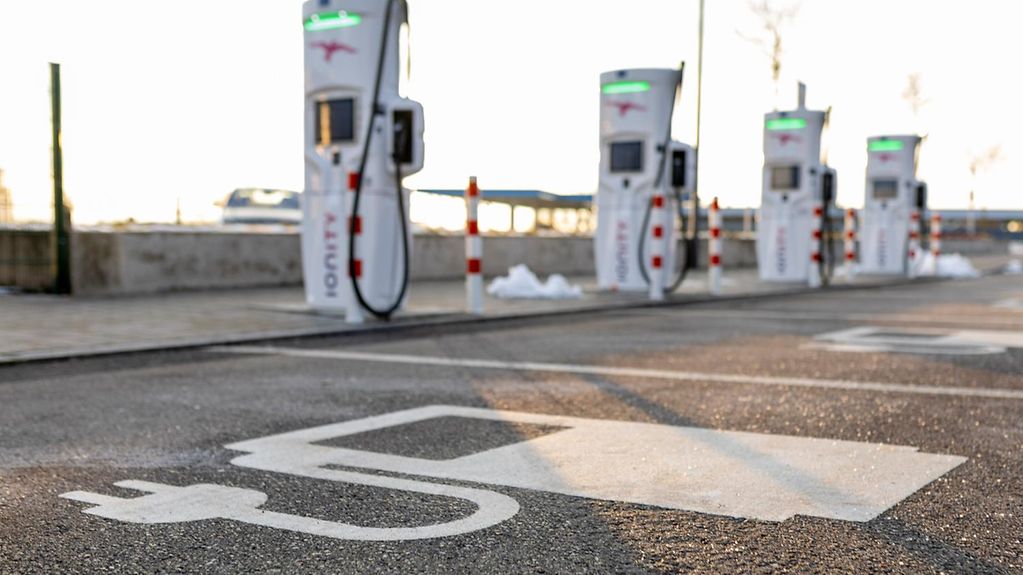Charging Infrastructure Master Plan II
Plans are in place to make Germany the global leading market for electric mobility. To make this happen, the charging infrastructure needs to be comprehensive, user-friendly and able to meet demand. In the Charging Infrastructure Master Plan II, the Federal Government has developed a new overarching strategy that sets out the timetable for the work to be undertaken over the next few years.
2 min reading time

A comprehensive network of charging facilities for electric vehicles is an important element of expanding electric mobility further.
Photo: picture alliance / Teresa Kröger/Kirchner-Media
Why is a Master Plan II needed?
The Federal Government passed the Charging Infrastructure Master Plan in 2019, which consolidated Federal Government activities aimed at boosting the expansion of the charging infrastructure. This Master Plan has been subject to ongoing evaluation, and was included in the coalition agreement for the 20th legislative period.
In the Master Plan II, the Federal Government has developed a new overarching interdepartmental strategy, which aims to make it easier, quicker and more convenient to construct and operate charging stations. It also aims to make operating charging infrastructure more attractive as a business model and thereby mobilise stronger investment from private finance.
What the Coalition Agreement says: “We will quickly revise the Charging Infrastructure Master Plan and consolidate necessary measures from construction, energy and transport, as well as making municipal networking of solutions a priority.”
What is included in the new Master Plan?
The Charging Infrastructure Master Plan II sets out the timetable for the next few years. It comprises 68 measures across funding, empowering communities, universal availability, integration into the power grid, charging at buildings, and heavy commercial vehicles. These measures are aimed at political leaders at national, Länder and municipal levels, along with investors, operators and providers, and also the automotive and energy industries.
The Master Plan II includes a stronger focus on a range of other issues, such as:
- Close integration of electric mobility and the power grid This will allow grid operators to prepare their networks for when electric mobility is ramped up. It will also help charging infrastructure planners and investors to take existing and planned power networks into consideration when choosing locations.
- Expanding the charging infrastructure for heavy commercial vehicles (i.e. lorries and buses) on motorways and commercial premises.
- Making the necessary sites available as quickly as possible and with no unnecessary bureaucracy, particularly along motorways. The Master Plan provides new tools for municipal and other authorities, while the Federal Government is setting an example by working towards its own ambitious goals.
- Mobilising private investment: First and foremost, the expansion and operation of charging infrastructure must be managed by businesses.
The Federal Ministry of Transport and the Federal Ministry for Economic Affairs set up an Interministry Charging Infrastructure Steering Group (ISLa) on 26 August 2022. Its role is to ensure the measures are implemented, to act as an early warning system when progress is going off course or where gaps emerge in the expansion, and to take action where necessary to address these issues.